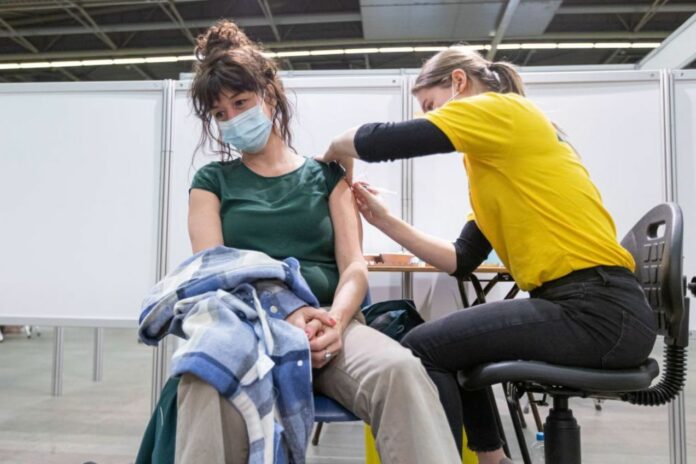After a second dose of the Moderna Spikevax COVID-19 vaccine, the risk of myocarditis, pericarditis, or myopericarditis is two to three times higher than with the Pfizer BioNTech COVID-19 vaccine.
However, cases of heart inflammation are very rare with either vaccine, according to a study in the Journal of the American College of Cardiology. Myocarditis was more common among males younger than 40 who received the Moderna vaccination, according to the authors.
Pfizer BioNTech (BNT162b2) and Moderna Spikevax (mRNA-1273) are the two mRNA COVID-19 vaccines that have been given approval for usage, and as of March 20, 2022, more than 52 million doses of Pfizer and 22 million doses of Moderna have been given in Canada, where this trial was carried out.
Vaccines have been confirmed to be safe through scientific studies, and those who have been vaccinated have experienced only moderate side effects that have subsided with time. However, both vaccines have been associated with certain uncommon but serious side effects, most notably myocarditis (inflammation of the heart).
While trials on either vaccine have been undertaken, few studies have been conducted to directly compare the safety of the two mRNA vaccines. Researchers compared the risks of myocarditis, pericarditis, and myopericarditis in this study between the Moderna and Pfizer COVID-19 vaccines.
People in the study were at least 18 years old and had received two primary doses of either a Pfizer or Moderna vaccine in British Columbia, Canada. The second dose was given between January 1, 2021, and September 9, 2021. People who got their first or second shot outside of British Columbia or who had myocarditis or pericarditis in the year before their second dose were not allowed to take part.
Overall, more than 2.2 million second Pfizer doses and more than 870,000 doses of Moderna were administered. A total of 59 myocarditis patients (21 Pfizer and 31 Moderna) and 41 pericarditis cases occurred within 21 days after the second dose (21 Pfizer and 20 Moderna).
Researchers also looked at rates per million doses, finding that Moderna had a rate of 35.6 cases per million and Pfizer’s was 12.6 cases per million, over three times higher after Moderna shots than Pfizer. Comparatively, the incidence of myocarditis in the general population in 2018 was 2.01 per million among those under 40 years of age and 2.2 per million among those over 40 years of age.
In both males and females between the ages of 18 and 39, rates of myocarditis and pericarditis were greater with the Moderna vaccine, with the highest per million rates in males between the ages of 18 and 29 following the second dose of Moderna.
To optimize benefits and reduce side effects, the authors claim that the findings support the recommendation that specific populations receive particular vaccinations.
One limitation of the study is that it was based on observations, which makes it harder to figure out if vaccinations cause myocarditis or pericarditis.
But the study’s design made sure to minimize the amount of time between the vaccine dosage and the diagnosis of myocarditis or pericarditis.
Additionally, the study may have overlooked some less serious cases because it relied on data from hospital and emergency department visits.
“Our findings have implications for strategizing the rollout of mRNA vaccines,” adds lead author said Naveed Janjua, “which should also consider the self-limiting and mild nature of most myocarditis events, benefits provided by vaccination, higher effectiveness of the Moderna vaccine against infection and hospitalization [found in prior studies], and the apparent higher risk of myocarditis following COVID-19 infection than with mRNA vaccination.”
“This is one of only a few direct comparisons of the two widely adopted mRNA vaccines, and its results have practical policy implications: for a substantial segment of the population suffering from cardiovascular disease…these data give a strong argument to preferentially use the BNT162b2 [Pfizer] vaccine over mRNA-1273 [Moderna],” comments Guy Witberg, MD, MPH, a cardiologist at Rabin Medical Center in Petah-Tikva, Israel.
Image Credit: Nicolas Economou/NurPhoto via Getty Images
